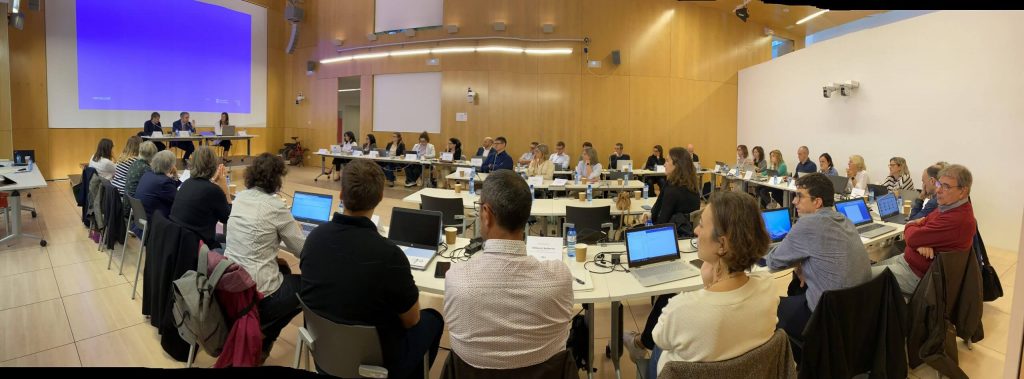Today I will talk about the country, about Catalonia. I will go a little beyond the scope of research centres to highlight how next week our small country will be going to the heart of the European Union to discuss, together with leading experts, the challenges of European research and innovation in the coming years.
Yes, that’s right. On 31 May, the leading representatives of the CERCA centres, together with key figures such as the Catalan Minister for Knowledge, Jordi Baiget, will meet in Brussels to raise questions and discuss solutions in the debates organised by the CERCA Institute on past developments and future expectations for R&D centres in the European Research Council (ERC), and also on the definition and implementation of the European Innovation Council (EIC). High-level representatives from the European Commission, the ERC and the expert group advising the EIC, as well as research and innovation officials from leading research centres and governments from other countries, will also be present at the discussions.
This debate is not only much awaited by Catalan institutions but also by leading institutions across Europe, as the answers to these questions will shape the future of European states, including Catalonia, once it comes into being. A country with a future is one that knows how to build on the creativity, effort and talent of its citizens. And this is exactly what Catalonia will be displaying next week at the CERCA Conference 2017.
Catalonia’s scientific and technological effervescence is undoubtedly a leader in a “clueless” Europe where the main partners are torn between joining or leaving the EU. Us Catalans have no doubt that we want to be part of it, not only as spectators, but as participants in key decisions to ensure their suitability. We want to overcome the historical restrictions that have condemned us to under-representation in the European Union.
I think this is the best letter of introduction a country can offer abroad. Showcasing the strength of its research and innovation by underpinning Southern Europe’s chief knowledge hub and contributing to creating a more advanced, competitive common space. The rest will follow… but clearly we must include research and innovation in the Catalan equation.
GenderTalent
Bruna Vives
18/11/2022
The CERCA Institute has launched ÀGORA, an unprecedented and innovative programme for the managers of CERCA centres. ÀGORA focuses on management training and strategic challenges in managing research and innovation.




